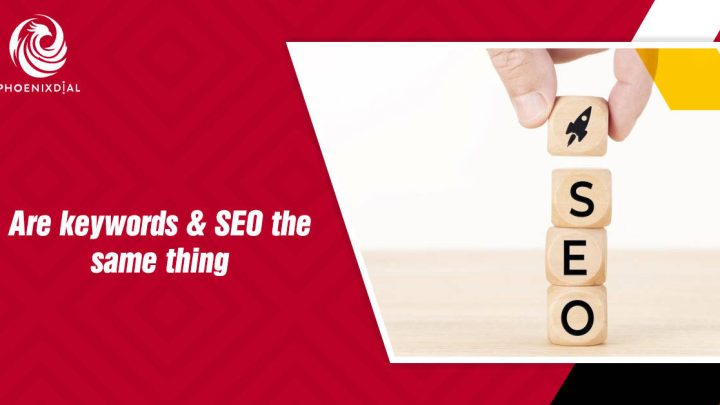SEO for Call Center and BPO | Boost & Grow Your Business
SEO for Call Center and BPO | Boost & Grow Your Business Published October 16, 2025 Get A Free Quote Did you know that over 90% of all Internet usage begins with a quick Google search? Thousands of people type in words or phrases — so-called keywords — every single second to look for information, products, or services. And the appalling news is: while businesses know keywords matter, they just come up with more ways to game them into SEO, believing the two are one and the same. That lack of knowledge is usually followed by bad strategies and bad outcomes. Most business owners will use hours and hours to incorporate keywords in their material in expectation of securing a position overnight. But when traffic fails to arrive, they are stumped, wondering what they did wrong. The fact is, keyword incorporation without SEO knowledge is like seeding without soil — you have words, but no soil that causes them to germinate. At Phoenix Dial, we’ve seen this issue countless times. Our team of SEO experts works closely with small and medium-sized businesses to fix this gap. We teach Are Keywords and SEO the Same Thing? — keywords help search engines understand your content, while SEO ensures that content reaches the right audience. In this blog post, we’ll clear up the confusion once and for all. You’ll learn what makes keywords and SEO different, how they work together, and why understanding this balance can change the way your business grows online. Start Growing Your Business Today Get a free, personalized quote via WhatsApp for your business. No pressure—just smart solutions tailored to your goals. WhatsApp What Are Keywords? Keywords are what people type into the web when they want to find something on the internet. They can be questions, product names, or even short sentences saying what they’re looking for. For example, if someone wants new shoes, they might type “best running shoes” into Google — and that’s a keyword. In the digital world, they are commands for search engines to tell them what your content is and where it should be delivered. There are two kinds of keywords you need to know and utilize effectively: Short-tail keywords are generic, one or two words, and very broad. Some examples are “shoes,” “marketing,” or “SEO.” These types of keywords generate a lot of searches but are also very competitive since a lot of sites attempt to rank for them. It’s kind of like being seen in an enormous crowd — possible, but more difficult. Long-tail keywords are more specific and detailed. They usually contain three or more words, such as “comfortable running shoes for women” or “affordable SEO services for small business.” These are of lesser quantity but greater intent. That is, the individuals searching for them are likely to convert — i.e., make a purchase or a reservation of a service. Keywords are crucial since they help Google and other search engines understand what your website is all about. Since your content includes the right SEO marketing keywords, the search engines can immediately link your page to people who are searching for the same. This improves your ranking, brings in targeted traffic, and allows your users to locate what they are seeking faster. What Is SEO? SEO, or Search Engine Optimization, is optimizing your website so that it appears higher on Google and other search engines. Simply put, SEO makes your website appear when someone is searching for something that pertains to your business. It’s all about getting your website user-friendly and also search engine-friendly. The better your SEO, the more searchers come to your site — more traffic, more leads, and more business for you. There are three central components of SEO that co-exist together to enhance your site performance: On-page SEO is all about all the things you can control on your site. It is using the correct keywords, writing useful and interesting content, making clear headings, and providing good titles and meta descriptions. On-page SEO informs Google what you are writing about and enables your users to get their answers. Off-page SEO is performed off your website. It’s making your website credible and trusted via other website links, social shares, and mentions online. These people who link back are like “votes” stating your website is credible and worth something. The more quality votes you’ve got, the higher your authority will be. Technical SEO is all about behind-the-scenes configurations that have an impact on how search engines crawl and index your website. Technical SEO involves optimizing page speed, making your site responsive, repairing broken links, and optimizing site structure. A technically perfect site provides for a seamless user experience and enables search engine crawlers to crawl your pages. When all three aspects — on-page, off-page, and technical SEO — are working in concert, your site is even more likely to rank higher in search. Having some concept of what the difference is between SEO and keyword research is also helpful, as keywords inform Google about what your page is about, but SEO lets your page actually rank for that keyword. They both go hand in hand to bring the proper traffic to your site. How Keywords and SEO Work Together Keywords and SEO are two fists in one — keywords are actually a huge part of SEO. SEO is all the effort of making your website better, and keywords are the nucleus upon which you are able to do that. SEO can’t function completely without effective keywords. And without SEO, your keywords will not provide the visibility you desire. SEO employs keywords in letting Google understand what your content is. By inserting the appropriate words and phrases that individuals seek out, Google can instantly recognize your subject matter and associate your content with such queries. That is how your site begins to appear in front of the right individuals. Once you employ SEO marketing keywords appropriately, your site begins ranking for the words your audience is already searching…





